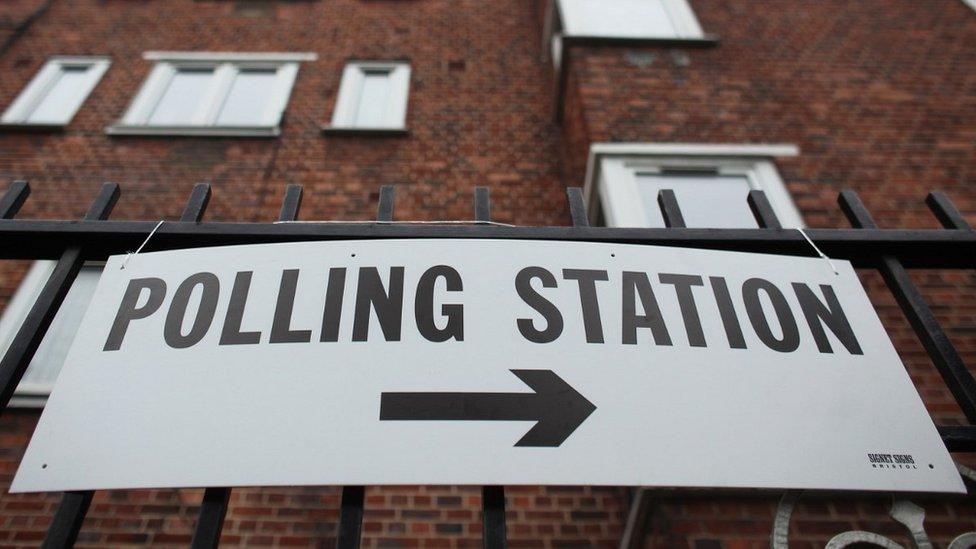London Elections 2021: How the mayoral and London Assembly elections work
- Published
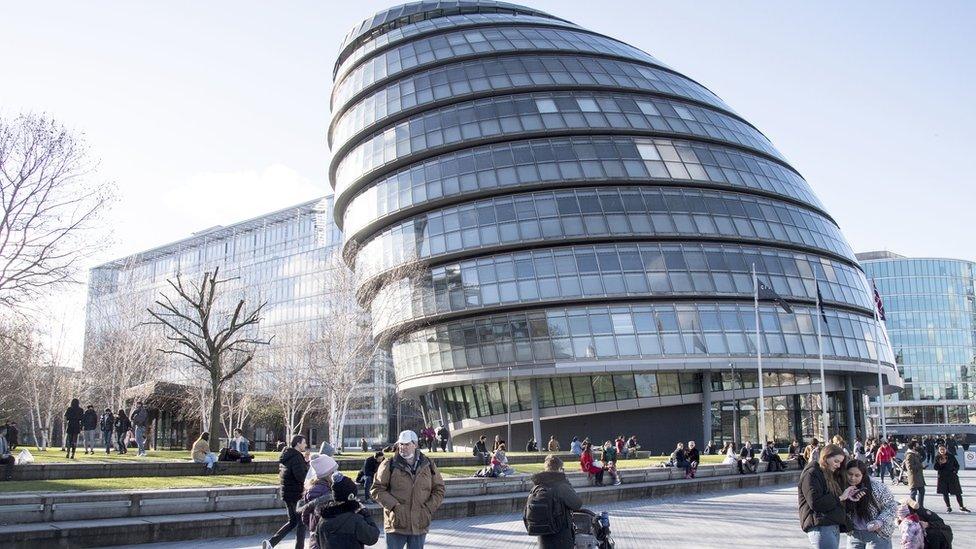
The election for the Greater London Authority takes place on Thursday 6 May - a chance for London's 6.2 million voters to elect the mayor of London and a new London Assembly. But how does the day actually work?
Are you a voter?
The deadline for registering to vote, external in this election is 19 April.
If you are on the electoral register, you should have received a polling card. This contains your polling number and polling station address.
Unlike in the general election, EU citizens living in London with a right to work or stay in the UK can vote.
How do I find my polling station?
Polling stations are usually in public buildings like community centres, churches and schools.
If you have not received a polling card, or have lost it, you can find your nearest polling station on the London Elects website, external.
Can I vote without my polling card?
Yes. The polling card is for your information, although taking it with you can speed things up.
When you arrive, staff will take your details and cross your name off their checklist.
How do I vote?
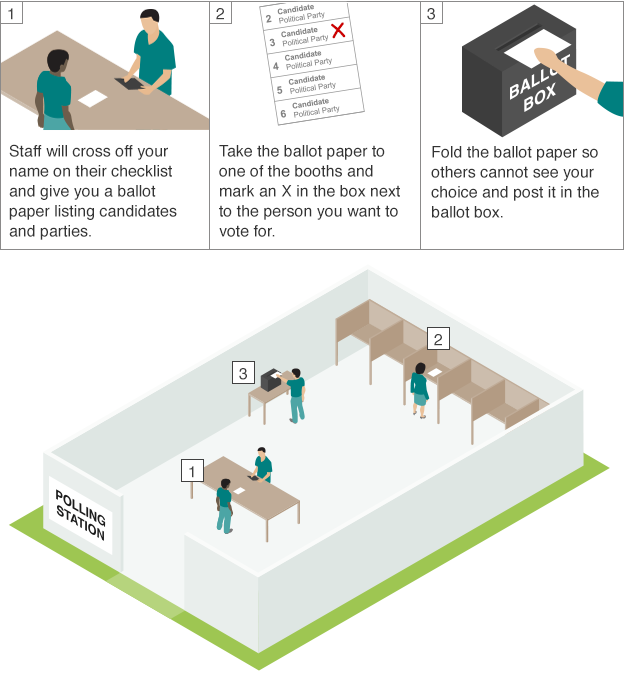
You will be given three ballot papers when you arrive, one for mayor of London and two picks for members of the London Assembly.
In total you will be asked to mark down four votes.
Take the ballot papers to a screened booth, where you will find a pencil to mark your vote with, although you can use your own pen if you'd prefer.
Read what's there carefully and then vote for your chosen candidate by putting an "X" in the box next to their name.
The pink ballot paper will be for your choice for mayor of London. You will be asked to pick your first and second choice for mayor. Each vote must be for a different candidate.
Choose who you want to represent your local area on the London Assembly, voting on the yellow ballot paper.
You then choose a second candidate for the London Assembly using the orange ballot paper, which is used to choose a member to represent the whole of the capital on the London Assembly.
The London-wide seats are worked out in a way that benefits parties that did not win constituency seats.
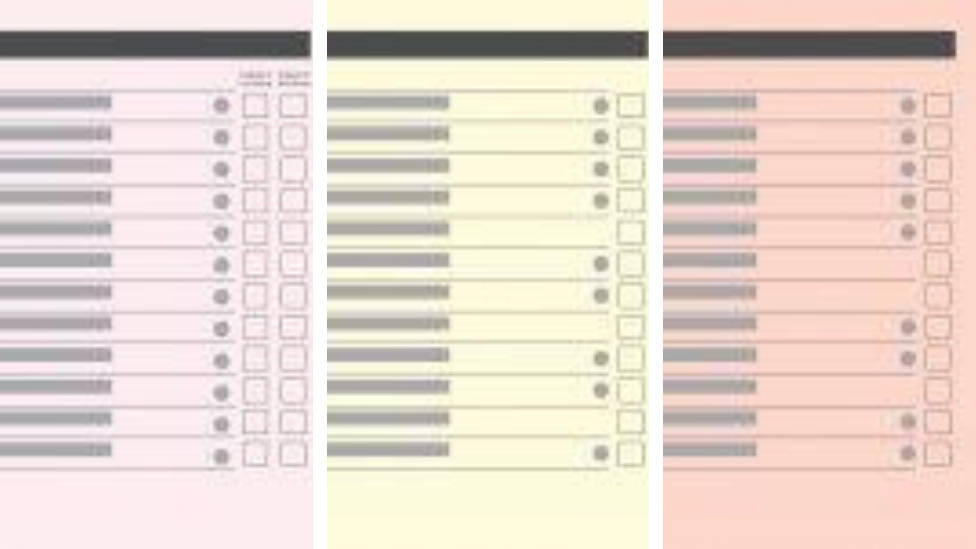
You will be asked to vote four times across three ballots
You must vote at the polling station to which you have been assigned any time between 07:00 and 22:00 BST on election day. If you are in a queue when the polls shut, you are guaranteed the opportunity to vote.
If you make a mistake, you can get another ballot paper - as long as you have not put the first one in the ballot box.
Votes made with a tick or even a smiley face may be counted if the voter's choice is clear,, external but will be disqualified otherwise.
Will the polling station be Covid-19 safe?
Polling stations might look a little different this year compared to the last time you voted.
There will be extra staff on hand, as well as screens and sanitising stations to help prevent the spread of coronavirus.
Voters are asked to wear a face-covering to the polling station, where social distancing will be enforced.
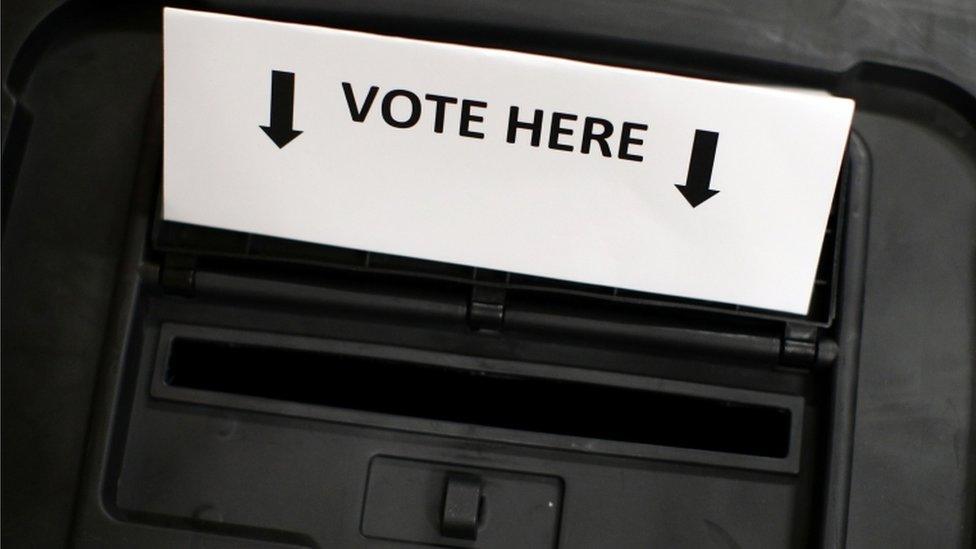
Can I spoil my ballot paper?
Yes. Some people spoil their votes as a protest vote. While these do not count towards any candidate, the votes are recorded.
Only 0.2% of votes were rejected, external for being invalid at the 2017 general election.
Can I vote without going to the polling station?
Yes, as long as you have met the deadline to register to vote by post or to appoint a proxy to vote on your behalf.
The deadline to apply for a postal vote is 17:00 on 20 April.
For proxy votes the deadline is a week later, at 17:00 on 27 April.
Postal votes must be received by the time the polls close.
You must say why you are unable to vote in person on the proxy application form., external
I have a disability - can I get help with voting?
Yes. You can ask the presiding officer to mark the paper for you, or bring a close family member who is over 18, or someone else who is eligible to vote, like a support worker, with you.
If you have a visual impairment, you can ask for a device that allows you to mark your own ballot paper. A large print version should also be available.
Polling stations are selected so that wheelchair ramps and disabled parking spaces are available.
If a voter cannot enter the polling station because of a physical disability, the presiding officer may take the ballot paper to the elector.
For help, call the Electoral Commission on 0333 103 1928.
A dedicated helpline for anyone with a learning disability, their families and carers, and polling station staff has also been set up by Mencap, a partner of the Electoral Commission.
The number is 020 7696 6009.
Is voting compulsory?
No. It is entirely up to you whether or not you vote.
Voter turnout in 2016 was 46%.
Who runs the polling stations and how are the votes counted?
Staff are recruited to work at polling stations via the electoral services department in local councils.
Jobs available include being the presiding officer, conducting the ballot, counting the votes and processing the postal votes.
When will we know who won the election?
The votes will start to be counted from 07.00 on Friday 7 May. The process is expected to take a little longer than usual due extra precautions being taken to prevent the spread of coronavirus.
Results for the mayor of London race and London Assembly elections are expected to be announced on Saturday afternoon at the earliest.
Related topics
- Published31 March 2021
